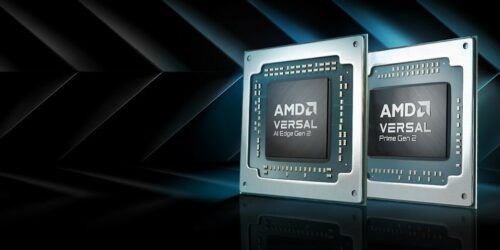The chips are designed for faster processing and efficiency in embedded applications, marking the future of AI-driven systems.

AMD has announced an expansion of the AMD Versal adaptive SoC portfolio with the new Versal AI Edge Series Gen 2 and Versal Prime Series Gen 2 adaptive SoCs. These SoCs combine preprocessing, AI inference, and postprocessing in a single device to completely accelerate AI-driven embedded systems.
The initial devices in the Versal Series Gen 2 portfolio are built on the first generation with new AI engines, expected to deliver up to 3x higher TOPs per watt than the first-generation Versal AI Edge Series devices. In contrast, new integrated Arm CPUs are expected to offer up to 10x more scalar compute than first-generation Versal AI Edge and Prime series devices.
The AMD Versal AI Edge Series Gen 2 devices have been engineered to address the sophisticated processing requirements of real-world systems. They achieve this by providing an optimal blend of processors tailored for each AI-driven embedded system acceleration phase. In the preprocessing phase, these devices leverage FPGA programmable logic, offering real-time processing capabilities with exceptional flexibility to interface with various sensors and execute high-throughput, low-latency data-processing pipelines.
Similarly, the AMD Versal Prime Series Gen 2 caters to traditional, non-AI-based embedded systems, offering end-to-end acceleration by merging programmable logic for sensor processing with high-performance embedded Arm CPUs. These devices are engineered to deliver up to 10x more scalar computing than their first-generation counterparts, enabling them to manage sensor processing and intricate scalar tasks adeptly.
“The demand for AI-enabled embedded applications is exploding and driving the need for single-chip solutions for the most efficient end-to-end acceleration within the power and area constraints of embedded systems,” said Salil Raje, senior vice president and general manager, Adaptive and Embedded Computing Group, AMD. “Backed by over 40 years of adaptive computing leadership, these latest generation Versal devices bring together multiple compute engines on a single architecture offering high compute efficiency and performance with scalability from the low-end to high-end.”
For more information, click here.











